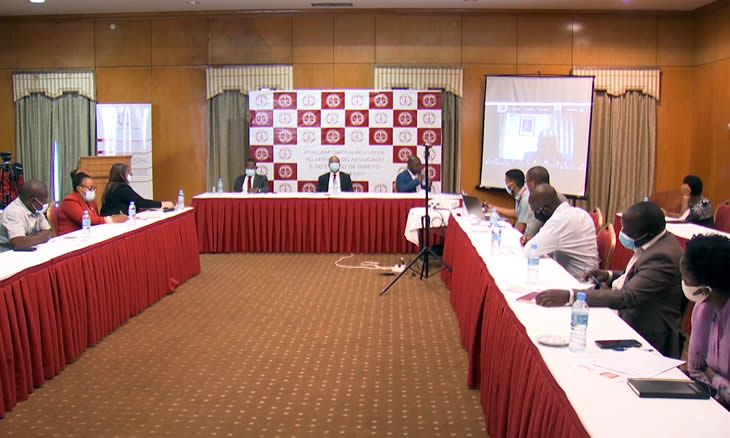Mozambique: Judges dismissed for corruption - AIM report
Human Rights Commission and Bar Association call for greater government openness about what is happening in Cabo Delgado – O País

Photo: O País
Not everything that has happened in the areas affected by terrorism in Cabo Delgado has been made public. Although, in this context, some information requires particular treatment, at the responsibility of the state, the National Commission on Human Rights (CNDH) believes that there is a need for greater openness.
“We know that we are in times of conflict. And in the context of conflict, there is classified information that cannot be released to the public, in the name of the state’s own security. But there is information that is of public interest, such as, for example, knowing if a family member is still alive,” Chair of the CNDH Luís Bitone said.
Bitone points out that “the most important thing is the distinction and separation between confidential information of operational or military import and that which is of interest to journalists and the public”.
The same understanding was expressed by the Mozambican Bar Association (OAM), which points out that lack of official information is the main factor promoting misinformation.
“We need information. Because when there is no information, the tendency is for speculation. Therefore, as long as we do not give official information we can act on, we run the risk of speculation on social networks and serious problems in the administration of justice,” president of OAM Casimiro Duarte said.
The CNDH says it is working with the defence and interior sectors to secure better access to information, and that the dialogue was having an effect.
“Recently there was a coordinating council of the Ministry of Defence, which I was called to moderate on the topic on human rights in conflict zones,” Bitone cited.
The president of the CNDH and the chairman of the Mozambican Bar Association were speaking this Friday on the sidelines of a debate on human rights during the Covid-19 pandemic and the State of Emergency in Mozambique.
At the event, it was disclosed that the Ombudsman has received only four complaints of violation perpetrated by public institutions – a much smaller number than in Portugal, for example, where the ombudsman’s office received about 3,000 complaints.
By Dália Langa













Leave a Reply
Be the First to Comment!
You must be logged in to post a comment.
You must be logged in to post a comment.